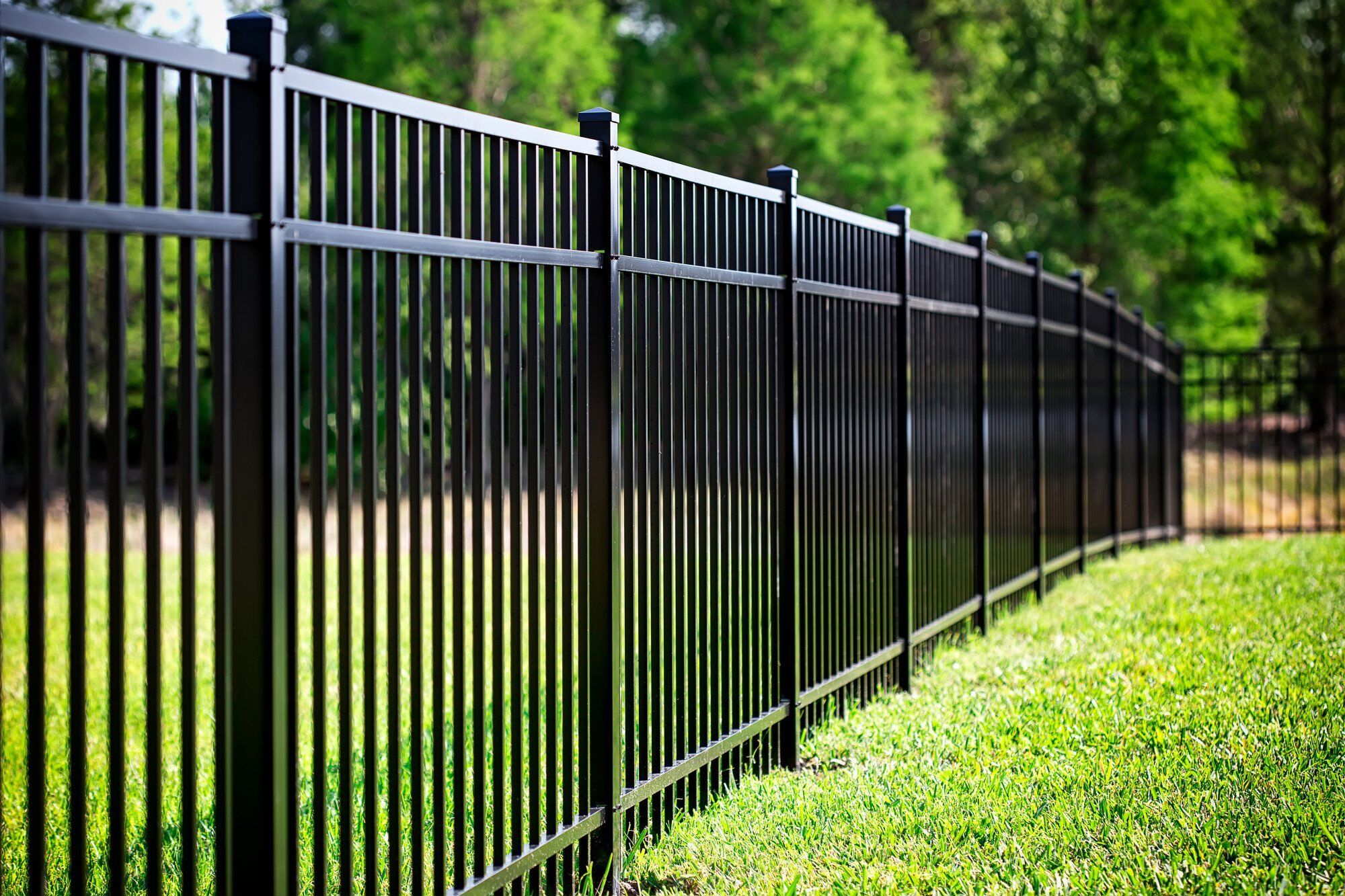All Categories
Featured

When installing a fencing, choosing the right material is vital to stabilizing performance, visual appeals, and spending plan. Wood, plastic, and light weight aluminum are among one of the most typically chosen secure fencing products, each with its staminas and drawbacks. This guide checks out the advantages and disadvantages of these options to aid you make an educated choice.

Timber Fencing. Pros:. All-natural Elegance: Wood's ageless appeal can enhance any kind of building with its traditional and warm look. Personalized: You can repaint, stain, or carve timber to fit your design choices. Cost effective: Wood fence is originally extra economical compared to some various other products. Eco-friendly: As a renewable source, wood is eco-friendly and typically thought about eco-friendly. Disadvantages:. Maintenance-Intensive: Regular sealing, painting, or discoloration is required to avoid damages from weather and parasites. Prone to Decay: Without proper treatment, wood can rot, warp, or crack with time. Much shorter Life expectancy: Usually, wood fences last 10-15 years, depending on the sort of timber and upkeep. Timber is an excellent option for those that value aesthetic appeals and agree to purchase normal upkeep to maintain its look and toughness.
Vinyl Fence. Pros:. Low Upkeep: Vinyl requires marginal care-- simply occasional cleaning with soap and water. Weather condition Resistant: It doesn't warp, rot, or catch insect damages, making it highly resilient in numerous environments. Long life: Plastic fencings can last 20-30 years with little to no repair services. Layout Range: Available in a large range of colors, appearances, and designs, consisting of wood-like appearances. Cons:. Greater Initial Expense: Plastic fencings are extra expensive upfront contrasted to timber. Vulnerability to Cold: In incredibly winter, plastic can end up being susceptible and fragile to splitting. Limited Repair Options: Matching replacement panels can be testing if damages occurs. Plastic fence is excellent for property owners seeking a durable, low-maintenance remedy that supplies contemporary convenience.

Light Weight Aluminum Secure Fencing. Pros:. Rust-Proof: Light weight aluminum resists rust, making it an outstanding choice for damp or wet settings. Resilient: In spite of being light-weight, light weight aluminum is solid and can withstand rough weather. Low Upkeep: It requires marginal maintenance, usually only periodic cleaning. Long Lifespan: Light weight aluminum fencings can last years without significant degeneration. Classy Design: Usually utilized for decorative functions, aluminum secure fencing adds a sleek, innovative want to properties. Disadvantages:. High Preliminary Financial investment: Light weight aluminum fences are among the pricier options on the market. Less Privacy: The open layouts typical with light weight aluminum fencing don't provide much privacy. Susceptible to Damages: While durable, light weight aluminum can damage if hit with adequate force. Aluminum is a superb selection for house owners prioritizing aesthetics and longevity without requiring much upkeep.
Making Your Choice. When deciding in between timber, light weight aluminum, or vinyl fencing, consider your top priorities:
Wood matches those that value an all-natural appearance and don't mind placing in maintenance effort. Plastic is the best choice for those seeking a low-maintenance, weather-resistant service. Light weight aluminum offers sleek design and long-lasting sturdiness however might lack privacy. By carefully examining these products' functions, you can pick a fence that complements your residential property while meeting your visual and practical requirements.
Latest Posts
Enhance Your Hyundai Ownership with Ron Marhofer Hyundai's Unique Programs
Published Apr 20, 25
1 min read
Visit Montclare Auto Repair Today - Reliable Service Guaranteed
Published Apr 20, 25
2 min read
Flexible Financing and Leasing Options at Hyundai of Akron
Published Apr 20, 25
1 min read
More
Latest Posts
Enhance Your Hyundai Ownership with Ron Marhofer Hyundai's Unique Programs
Published Apr 20, 25
1 min read
Visit Montclare Auto Repair Today - Reliable Service Guaranteed
Published Apr 20, 25
2 min read
Flexible Financing and Leasing Options at Hyundai of Akron
Published Apr 20, 25
1 min read